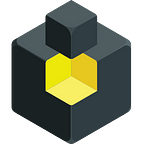Blockchain and its applications
There is no shortage of promises when it comes to blockchain. But a complex technology is useless if it doesn’t present real world applications, right? Despite serving as the basis for many utopias of a decentralized society, blockchain also has several immediate use cases.
If you are looking to learn more about how blockchain works, you can start with this post before coming back here.
Blockchain showed up on everyone’s radar along with the Bitcoin boom in the early 2010s. For a long time, it was looked at as the basis for a new decentralized financial system and nothing more. Despite having only one functionality at the time, the concept revolutionized the way we treat our security and privacy.
A few years went by before someone exposed the enormous potential we had in our hands.
That someone was Vitalik Buterin, the young founder of Bitcoin Magazine, in his whitepaper “Ethereum: A next-generation cryptocurrency and decentralized application platform”. Changes didn’t come overnight, but it was at that moment that the potential behind blockchain started to bloom.
What places the Ethereum network ahead is the wide possibilities presented by smart contracts and decentralized applications.
Let’s get to know a little more about the possible immediate applications of blockchain:
Decentralized finance — DeFi
This is the first application that comes to mind when we talk about blockchain, after all it was created for this purpose and has been used for it successfully ever since. Bitcoin is a prime example of a financial system, but it is far from the only one. Within the Ethereum platform there are several other projects.
One of the fundamental aspects of blockchain is transaction security. It is not possible to transfer money beyond what is in your wallet or to fraud transactions by cloning them. In addition to that, with smart contracts it is possible to safely buy and sell assets, negotiate loans, investments and much more.
P2P
To many this is the most interesting part of technology. P2P stands for Peer to Peer, that is, from person to person. Interactions completely free of intermediaries.
The biggest problem in negotiations between individuals is the lack of trust. What guarantees that no one will be taken advantage of?
Smart contracts enable interactions without the need for trust or intermediaries. Sellers can ship items with peace of mind knowing that payment has already been deposited, and the buyer has the security of knowing that in case of fraud, they will get their money back. All automatically through smart contracts.
This solution is very similar to platforms like eBay, but through blockchain there is no need for intermediaries, fees and regulations.
Data storage and transfer
USBs and HDs are not foolproof. In addition to physical fragility, there is the limitation of taking up space. For a while, clouds seemed to be the ideal solution, but they have already shown flaws in terms of security.
Having control over your own files and not having to depend on others would be the ideal world, wouldn’t it?
Well, blockchain can also serve as a secure way to store and transfer data. All in the security of a powerful encryption algorithm.
NFTs
NFT (non-fungible token) is a form of asset registration that has been buzzing in the art world and is proving to be a revolution for digital art and artists.
They make it possible to prove the originality and ownership of a digital asset in the same way that is done with physical pieces.This is tropix’s specialty and we are passionate about empowering art and artists through technology.
In addition to digital items, it is also possible to register physical goods and facilitate the sale and transfer of ownership through blockchain.
Logistic
Imagine a world where you don’t have to worry about packages getting lost in the mail.
By monitoring each step between the warehouse and the destination, through records on the blockchain, tracking can become more efficient and the risk of mishandling information drops to near zero.
Identification
One of the biggest concerns of modern life is data protection. To be a part of a connected world, we need to share our sensitive information with websites and apps. Even in “trusted” platforms, there is no such thing as absolute security. More than 1200 data breaches have already happened in 2021, and we still have two more months until the end of the year.
Through blockchain encryption, it is possible to exchange information without worrying about having your data stolen and sold.
Entertainment
Digital arts, copyright registration, NFTs in games, safe bets. The options for entertainment are numerous.
In the video game world, we are seeing big companies like Roblox taking the first steps towards using NFTs to register items in games. In the field of betting, we see the possibility of 100% transparent games without the risk of fraud, not to mention the freedom of not being tied to a company/government. Musicians and visual artists can now register and sell their work, physical or digital, without the need for intermediaries.
All of this is based on the same principles: an auditable data validation system that works by grouping information in blocks, chronologically, and spreading them through a decentralized network.
The possibilities opened up by implementing decentralized applications and smart contracts on the blockchain are countless. According to the creator of the Ethereum network himself, users have already created solutions that not even he imagined when he wrote his whitepaper. We hope to continue to see innovations in the coming years with increasingly more solutions for our day-to-day lives.
